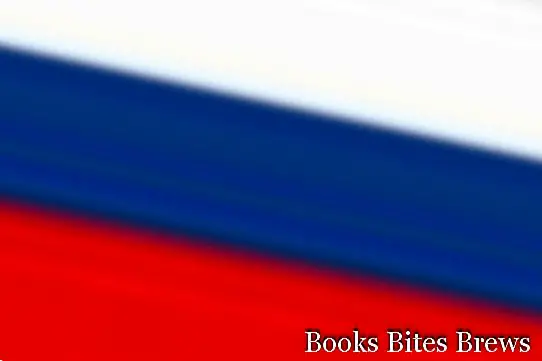Useful information about Russia, including all the useful things to know before leaving for a trip or vacation in the Russian Federation.
Russia in short
- Capital: Moscow
- Area in sq km: 17,075,200
- Population: 142,498,534 (2006)
- Religion: Orthodox, with Catholic and Protestant minorities, Muslim, Jewish, animist
Where is it
The state of the Russian Federation extends between Europe and Asia, bordered to the west by Finland, Estonia, Latvia, Belarus, to the north west with Norway, to the north with Lithuania, to the south with Poland (Kaliningrad), to the south west with Ukraine, to south with Georgia, Azerbaijan, Kazakhstan, Mongolia, China and North Korea.
To the north it faces the Arctic Ocean, to the west to the Baltic Sea, to the east to the Pacific Ocean and to the south to the Black Sea. The territory can be divided as follows: European Russia (west of the Urals), Siberia (east of the Urals) and Far Eastern Russia overlooking the Pacific Ocean.
European Russia is almost entirely occupied by the Sarmantic Lowlands, at the center of which are the reliefs of the Rialto del Valdaj, the Russian Central Rialto, the Donec and Volga hills. To the south between the Black Sea and the Caspian Sea lie the fertile plains of the Don, Volga, Ural rivers and the Caucasus mountain range.
The Siberian region includes, to the east of the Urals, the Siberian Lowlands (a mostly marshy region) and the Siberian Plateau which is located east of the Jenisej River.
The plateau has an average altitude of 600 m. it is very rich in mineral resources and east of the Lena river rises with the reliefs of the Verhojansk mountains, the Cerski mountains and the Kolyma mountains. The Kamchatka Peninsula located at the eastern end of Russia is rich in partially active volcanoes.
Hydrography
The Ob River together with its tributary Irkush forms the largest river basin in Russia, originates in north-western China and flows into the Arctic Ocean.
In the Arctic Ocean also the rivers, Jenisej, Lena, Kolyma and other rivers of European Russia such as Peciora and Northern Dvina flow.
The Volga River is the largest in European Russia and flows into the Caspian Sea, in this sea also flows the Ural River.
The West Dvina, Neman and Neva rivers flow into the Baltic Sea (the city of St. Petersburg rises at the mouth of the Neva River). The Don, Dnieper and Kuban rivers are tributaries of the Black Sea.
The Amur that flows mostly on the border between Russia and China enters the last stretch of its course in Russia and flows into the Pacific Ocean.
Recommended readings- St. Petersburg (Russia): what to see
- New Siberia (Russia): archipelago covered in ice
- Sochi (Russia): what to see in the holiday resort
- Moscow (Russia): what to see in the capital
- Russia: useful information
The main lakes are: the Caspian Sea (it is the largest lake basin in the world), Lake Baikal which is located in southern Siberia (included in the basin of the Jenisej river), Lake Ladoga and Lake Onega located in the region of the great lakes of the Northwest European Russia.
Climate
The climate in Russia is continental with long, cold winters and short summers, quite hot (temperate in the colder areas).
Although annual rainfall is scarce in most of the country, in the summer, the warm and humid air of the Atlantic manages to reach central Siberia causing rainfall that is very useful for agriculture.
The coldest areas correspond to eastern Siberia and along the arctic and peaceful coasts where in winter temperatures with many degrees below zero are recorded.
Population
Russia's population is made up of groups of various nationalities. The main ethnic group is that of the Russians (approx. 80% of the total); there are also Finnish communities (on the border with Finland), Laplanders and Samoyeds (Mongols), Finno-Mongolian populations (in the basins of the Ob and Jenisej rivers), groups of Tartars (in the lower Volga basin).
In Siberia, alongside a minority of Paleosiberians, Eskimos, Buryats, Tungusis and Yacutis live (they are all of the Mongolian race).
Time zone
The Russian Federation is crossed by 11 time zones.
In the part of European Russia, including Moscow and St. Petersburg, the time difference is 3 hours ahead of Italy (when in Italy summer time is in force from March to October the difference is reduced to 2 hours).
In Siberia the time varies from 5 to 11 hours ahead depending on longitude.
Spoken language
The official language is Russian, but considering the vastness of this country many dialects and idioms are spoken by the population. (The road signs are written in Cyrillic).
Economy
After the collapse of the Soviet Union, the transition process from a planned economy to a market economy began, which resulted in a first limited recovery then followed by a deterioration in living standards, until 1999, when the economy started to recover maintaining a discreet but also not homogeneous level of development.
The immensity of the Russian territory contains valuable energy reserves. Russia is the world's largest producer of gas and has an excellent production of crude oil, in addition there are deposits of ferrous minerals, nickel, copper, tungsten, cobalt, gold, silver and diamonds.
In agricultural production, the cultivation of cereals excels (among the largest producers in the world), breeding is practiced, especially cattle and also as regards fishing, Russia is among the world's largest producers. The production of timber is also significant thanks to the wealth of forests scattered throughout the territory.
The industry has developed the petrochemical, chemical, military, mechanical sectors and also the sectors of the aerospace and aircraft industry, the food industry is lacking.
When to go
The best time to go to Russia is late spring and summer (from May until August), the winter months are rather cold.
Necessary documents
To enter Russia you need a passport (in good condition) with a residual validity of at least 6 months upon arrival in the country.
The entry visa is mandatory, it can be requested at the Consular offices of Rome, Milan or Genoa and includes three stages: invitation, visa application and registration.
Upon entering the country, you must complete the Immigration Card, the receipt of which must be kept during the period of stay.
In addition, the Russian natural or legal person who invited the foreign citizen must register with a notification to the UFMS (Federal Immigration Service) which issues a slip of the successful registration.
The foreign citizen must bring this slip with him which will then be used by the inviting natural / legal person to notify the departure of the foreign guest.
Phone
- The international prefix for calling from Italy to Russia is: 007
- The international prefix for making calls from Russia to Italy is: 81039
The Russian cellular network covers population centers and various wooded areas. To call, it is preferable to buy a Russian sim card.
For long distance calls within the country, you need to dial 8 and then the prefix of the Russian city and the desired phone number.
Electricity
The electric current in Russia is 220 V 50 Hz. Sockets type C and F.
Currency
The official Russian currency is the Ruble (RUB). The Ruble is not exportable therefore it is good to change small amounts.
The currency control law states that it is not possible for non-residents of the country to leave Russia with more currency than the arrival currency.
The US dollar and the euro are easily exchanged at banks, exchange offices, airports and hotels. Credit cards are almost always accepted in the most luxurious clubs and hotels in the most important cities.
How to get
plane
The airlines Aeroflot and Alitalia operate direct flights between Italy and Russia, while operating flights with a stopover: Lufthansa, Klm, Austrian Airlines, Czech Airlines, Sas.
Train
From the European capitals there are various railway connections with Russia: from the Berlin railway station there are direct departures to Moscow (a transit visa for Belarus is required), or it is possible to leave from the Warsaw station to go from Kaunas (Lithuania) and from Riga (Latvia) where there is the train to Moscow or St. Petersburg.
Also from Helsinki, there are various connections with Saint Petersburg (the Sibelius Finnish train is very comfortable), also there are also bus lines that connect Finland to Russia. For travel within the country, the train is the most used means.
Vaccinations
No vaccinations are required to enter Russia.
Vaccinations against hepatitis A and B and antidiphtheria are recommended.
It is not recommended to drink running water, even if officially drinkable, due to the high presence of mineral salts (in some areas the purification and control system does not work perfectly).
A health insurance policy is needed to cover medical expenses.
The public health system is lacking in equipment and medicines, especially outside the cities of Moscow and St. Petersburg.




